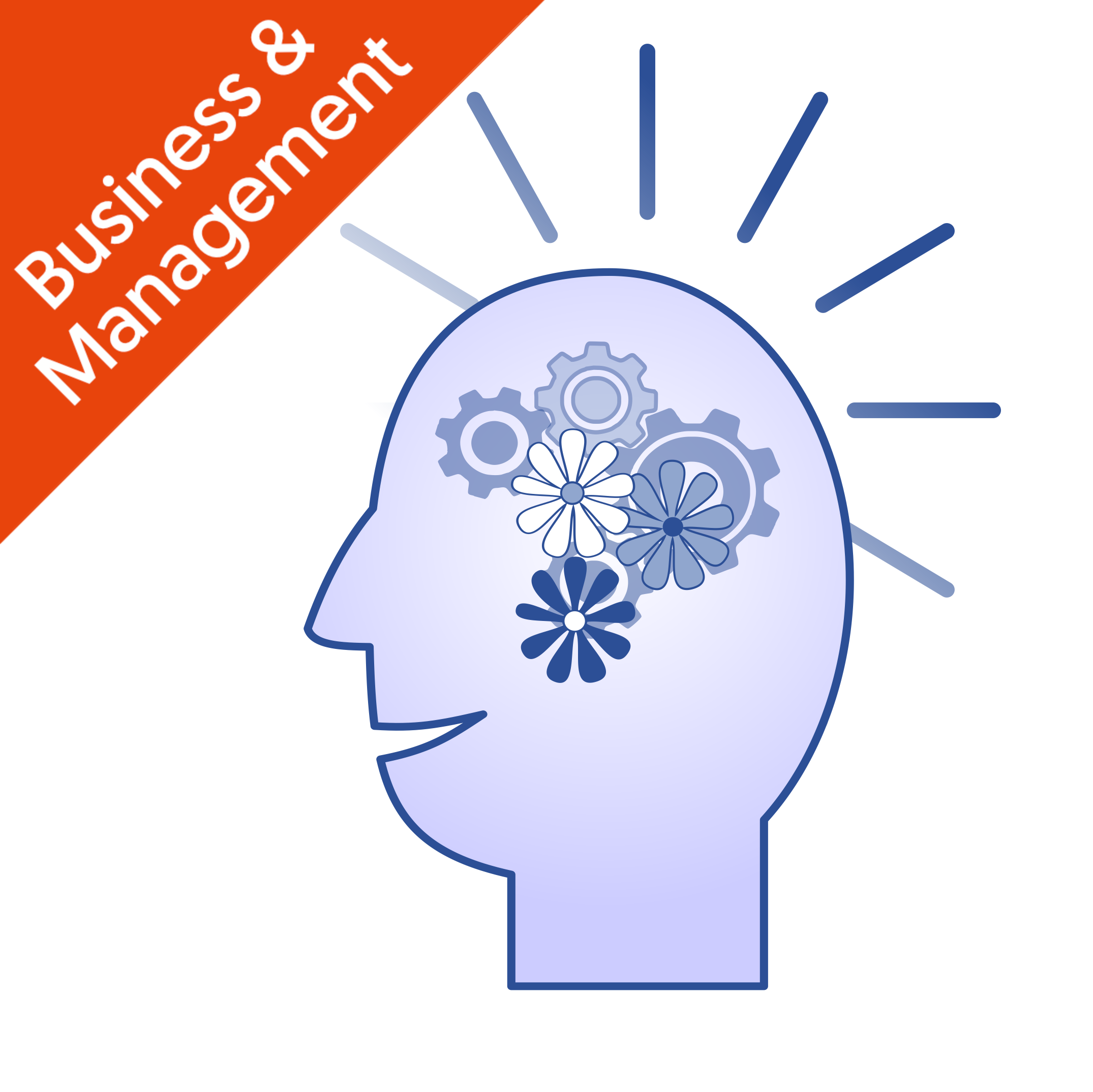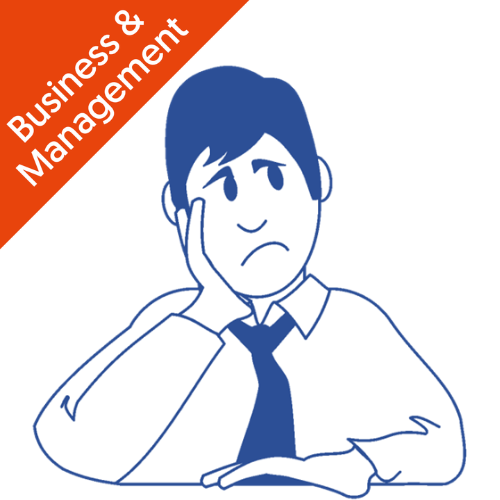Anxiety. A familiar feeling of unease or worry often occurs during stress or change. It's a natural human response that usually dissipates as we resolve challenges or when circumstances change.
Dealing with anxiety at work presents a challenge. Many people have trouble completing work tasks because of excessive worries about everyday life or personal problems. Sometimes, the work itself can contribute to feelings of anxiety.
For some individuals, anxiety takes a more overpowering form, disrupting their daily lives and relationships. This is especially true when a person experiences anxiety regularly or when it strikes without reason. It can become a mental health issue if it interferes with how you want to live.
This article looks at different types of anxiety disorders and possible symptoms. We will also explore coping strategies when dealing with workplace anxiety.
Types of Anxiety Disorders
Anxiety takes various forms, and each disorder has its own characteristics. Below is a list of the most often diagnosed anxiety disorders.
Generalised Anxiety Disorder (GAD)
People with Generalised Anxiety Disorder face persistent, uncontrollable worries about various aspects of their lives. This diagnosis is broad, as GAD's impact can differ significantly from person to person.
Social Anxiety Disorder
Social situations trigger Social Anxiety Disorder, causing anxiety when attending gatherings or interacting with others. It can feel paralysing, affecting both personal and professional life.
Panic Disorder
Panic Disorder involves frequent anxiety or panic attacks without apparent triggers. In severe cases, the fear of experiencing panic attacks can frustratingly lead to more panic attacks.
Phobias
Phobias involve intense, irrational fears of specific situations or objects. Encountering the feared stimuli triggers severe anxiety, potentially disrupting one's life.
Post-Traumatic Stress Disorder (PTSD)
Following a significant trauma, individuals with PTSD develop ongoing anxiety. Flashbacks re-live the original anxiety, causing distressing recollections of the traumatic event.
Obsessive-Compulsive Disorder (OCD)
OCD manifests in anxiety related to specific thoughts or behaviours. Anxiety arises when things aren't as desired or because of compulsive actions that an individual feels urged to do.
All the disorders mentioned above can be triggered at or by our working environments. Learning about the signs of anxiety can help us acknowledge the problem and seek help.
Recognising the Signs of Anxiety
Anxiety manifests in various ways, depending on personality and an individual's circumstances. Common signs include:
- Restlessness or irritability.
- Difficulty concentrating, often seeking reassurance from others.
- Sleep disturbances.
- Nausea, dizziness, or shortness of breath.
- Excessive sweating.
- Rapid or irregular heartbeat.
- Panic attacks.
- Avoidance of anxiety-inducing situations.
Causes of Anxiety
Anxiety stems from our body's response to perceived threats. Hormones like adrenaline and cortisol increase. This induces heightened alertness and a faster heartbeat, activating the 'fight, flight, or freeze' response.
Various triggers cause anxiety. Including:
- Past Experiences: Trauma, abuse, neglect, or social exclusion can contribute to anxiety.
- Current Situations: Stress, overwork, financial strain, and demanding circumstances amplify anxiety.
- Health Factors: Existing physical or mental health issues can interact with anxiety.
- Substance Use: Medications, drugs, and alcohol can trigger or exacerbate anxiety.
How to cope with Anxiety at work
Understanding the roots of anxiety is the first step in managing it effectively. Is work the trigger, or are there other causes? Addressing anxiety holistically can help manage any symptoms that present whilst at work.
One strategy is mindfulness. In our article addressing workplace stress, you can read more about how mindfulness improves mental health.
Another way to alleviate anxiety and other mental health issues is by focusing on physical health. This includes having a balanced diet, adequate sleep, and stress management to improve overall anxiety resilience.
How does exercise help anxiety?
Even minor physical activity releases endorphins, which make us feel better and aid in sleep. Getting more physically active does not have to be time-consuming or expensive: going for a stroll during a work break or doing a brief workout routine in the garden can have a significant physical and emotional impact. Numerous apps available can demonstrate how to become more active and successfully motivate you along the road.
How does diet help anxiety?
Another important aspect of our physical health is healthy eating. A balanced diet with plenty of fruits and vegetables while limiting items heavy in sugar and fat will help us feel better and offer us more energy. Try preparing a healthy lunch and bringing it to work rather than relying on vending machines or takeaways.
Many people use alcohol, caffeine, tobacco, and prescription/recreational drugs to cope with fatigue or mental health problems. These substances, however, can be highly addictive and can harm our physical and psychological health.
Cutting down on or cutting out these substances can enhance your mental health, and there is lots of help available from the NHS and charities like FRANK to help you do so.
How does sleep help anxiety?
Sleeping well can improve our mood and mental health and make us more productive and able to concentrate at work.
A regular sleep routine is one of the most effective strategies to improve your sleep. Going to bed at the same time each night can assist with falling asleep, as can taking time to relax before bed. Instead of watching TV or scrolling through social media on your phone, consider reading a book or listening to soothing music.
Caffeine, sweets, and alcohol can all disrupt sleep, so avoid them before bed or replace them with alternatives such as herbal tea.
Finally, sleeping in a dark, silent environment is more comfortable. Try using blackout curtains or eye masks to block out as much light as possible from windows and earplugs to filter out noise. You may also find it helpful to keep phones, clocks, and other electronics away from your bed to avoid distractions during the night.
The simple solutions outlined here cannot resolve some severe sleep issues. If you still have trouble sleeping after trying these suggestions, you should seek medical treatment, especially if your sleep problems interfere with your daily life or exacerbate any anxiety issues.
Breathing Exercises for workplace anxiety
Improving health is one way to help prevent anxiety symptoms. But what about if you already have anxious feelings? You might find breathing exercises beneficial. There are several exercises to try, and you can practise them whilst at work or on a break. The NHS has a simple five-minute routine, or you can try mindful breathing by following the steps below:
- Begin by settling into a comfortable posture, closing your eyes, and inhaling and exhaling slowly and deeply. Relax your shoulders and neck as you do, so pay attention to the feelings you feel as the breath enters and exits your body.
- Try to notice the physical sensations your body feels when breathing, such as the feel of your clothes or the chair beneath you.
- Also, pay attention to what you're thinking and how you're feeling. You don't need to change these thoughts; just be aware of how they interact.
- Take a final breath and open your eyes when you're ready. Try to carry the awareness you experienced throughout the exercise for the rest of the day.
More help for anxiety at work
If you are concerned about anxiety and how it affects your everyday life and career, you can obtain more help. Recognising this shows strong self-awareness and a proactive attitude to improving your health. You can talk to your line manager or HR department if your workplace has one to get more information about the support available. Or call your GP, the NHS's 111 service, or refer yourself for talking therapy.
Anxiety's presence is undeniable. Becoming more aware of what causes anxiety and how it presents itself can help us spot symptoms in ourselves and our colleagues. You can regain control over feelings of anxiety by recognising its forms, understanding its triggers, and employing effective strategies. Seeking professional help is a sign of strength; anxiety's grip can loosen with the proper support.
To learn more about mental health, how you can increase well-being and help others, check out our courses below:








